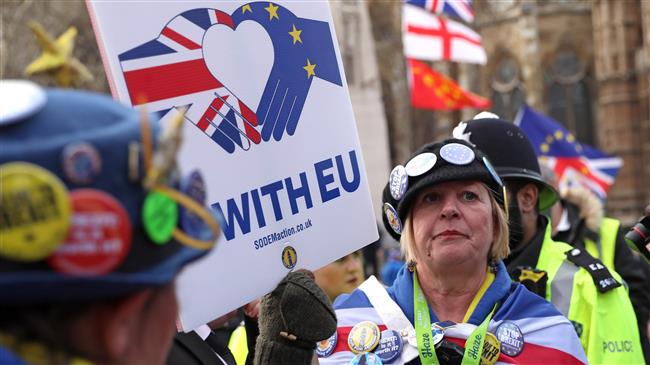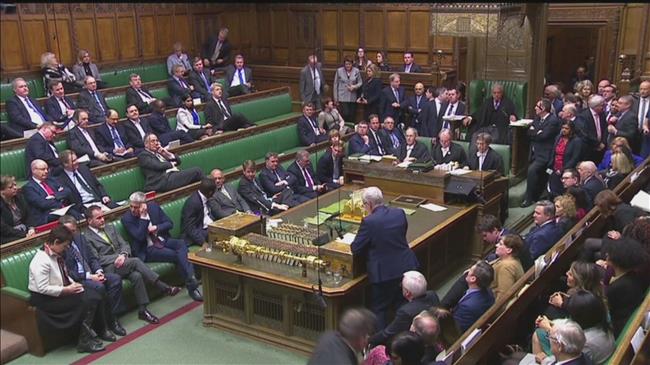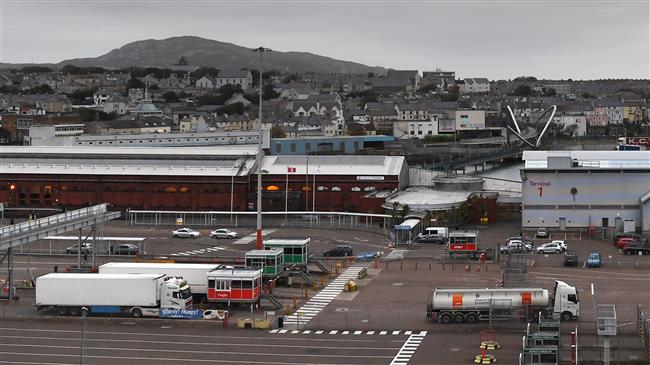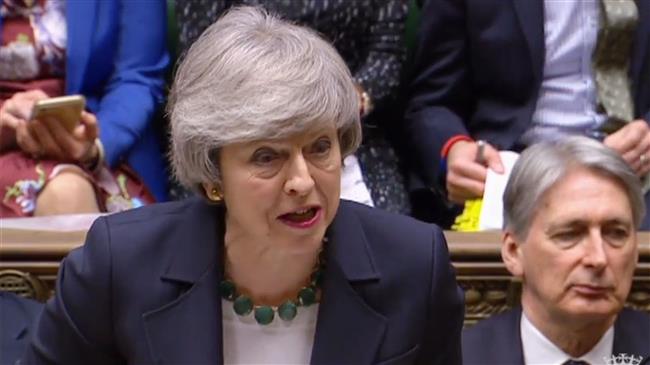UK Remainers plan huge march, possible referendum in run-up to Brexit
British campaigners and Members of Parliament opposed to the country's imminent withdrawal from the European Union, which many believe would take place in a disorderly manner, are planning a huge march and a possible referendum to stop the divorce days before the official deadline at the end of March.
The Observer newspaper said on Sunday that hundreds of thousands could turn up at the march in central London on March 23, which is aimed to protest government plans for leaving the EU either on terms of a controversial deal, which is yet to gain Parliament’s approval, or without an agreement, a move that could unleash huge economic uncertainties.
The march is mainly aimed at persuading members of the parliament to endorse the idea that they should only back Prime Minister Theresa May’s Brexit deal if it is put to a final vote of the British people, or in other words a new referendum three years after the June 2016 vote that triggered the divorce.
For the plan to succeed, pro-EU MPs need to pass a "lethal" amendment that would allow May’s deal to be passed only after people endorsed it in a referendum.
Doing so would require a delay of the official exit date from the EU, which is planned for March 29, something that the government has roundly rejected.
This is a rare moment of historic importance. We stand on the brink of a national collapse.
— David Lammy (@DavidLammy) February 17, 2019
It's time to take to the streets. Join us on the #PutItToThePeople #PeoplesVote rally on 23 March to help stop Brexit and pull the country back from the brink. https://t.co/Tdi86GglKe
A possible rejection of May’s deal in the second referendum raises the chances of reversing Brexit and extending London's stay in the EU on current terms, the report added.
Anti-Brexit campaigners and politicians believe May is deliberately delaying a final parliamentary vote on her Brexit deal to force the lawmakers into a situation to either support a deal she signed with the EU in November or to give in to a no-deal exit.
Experts have warned that Britain’s disorderly exit from the EU would have huge impacts on the economy.
Ever since lawmakers in the House of Commons rejected May’s Brexit deal on January 15, she has been trying to gain concessions from the EU that would allow the deal to pass the chamber.
The EU has rejected UK’s demands for a renegotiation of a clause in the agreement which sets out terms for future administration of the Irish border. Brussels says the so-called Irish backstop should remain intact to ensure that there would be no return to a hard border between Ireland and the British province of Northern Ireland after Brexit.
May has insisted she would honor the exit date and would implement Brexit on time regardless of the political stalemate in the parliament.
Israel attacks eastern Lebanon for first time since ceasefire
‘Christ under rubble’: Christians in Gaza mark another Christmas amid genocide
Iran’s president extends condolences to Azerbaijan’s Aliyev over plane crash
VIDEO | Press TV's news headlines
Iran says Christmas opportunity to remind ourselves of Jesus Christ call for 'justice, peace'
VIDEO | Eyewitness video shows moment of plane crash in Kazakhstan
VIDEO | Lebanese Christians celebrate Christmas over ruins
Iran FM: ‘Too early’ to predict Syria’s future for those thinking ‘victories’ achieved














 This makes it easy to access the Press TV website
This makes it easy to access the Press TV website